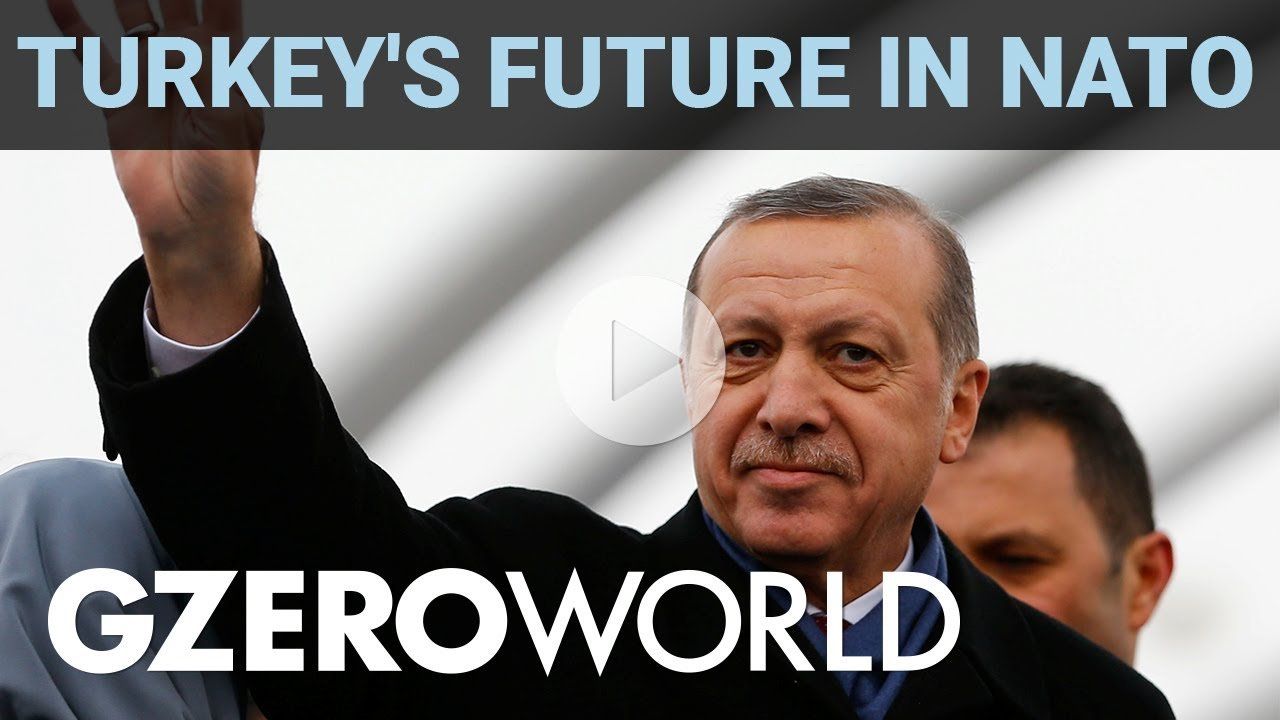GZERO World Clips
Erdoğan, NATO & why Turkey's presidential election matters

Erdoğan, NATO & why Turkey's presidential election matters | GZERO World

Turkey's presidential election is on May 14, and Recep Tayyip Erdoğan is not guaranteed to remain in power. How might that impact NATO?
If Erdoğan loses, "it'll matter a lot" for both Turkey and NATO, former US Ambassador to NATO Ivo Daalder says in a GZERO World interview with Ian Bremmer. Erdoğan's opposition is campaigning on a pro-Western platform, and once in power, Turkey could once again become a helpful alliance member, stop using its veto power so frequently, and finally allow Sweden to join NATO.
"It'll always be there. It's a strategic country in that region," Daalder explains, "but we won't doubt anymore where its bona fides lie."
China was largely absent from the core conversations at the 2026 Munich Security Conference. That, says Ian Bremmer, is telling.
At the 2026 Munich Security Conference, Brad Smith announces the launch of the Trusted Tech Alliance, a coalition of global technology leaders, including Microsoft, committing to secure cross-border tech flows, ethical governance, and stronger data protections.
Tune in today at 12pm ET/6pm CET for the live premiere of our Global Stage from the 2026 Munich Security Conference, where our panel of experts takes aim at the latest global security challenges. NY Times National Security Correspondent David Sanger moderates the discussion with Benedetta Berti, Secretary General, NATO Parliamentary Assembly; Ian Bremmer, President & Co-founder, Eurasia Group & GZERO Media; Dr. Wolfgang Dierker, Global Head of Government Affairs, SAP; and Brad Smith, Vice Chair & President, Microsoft.